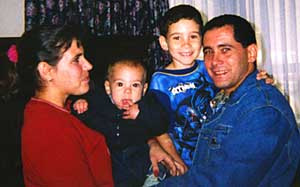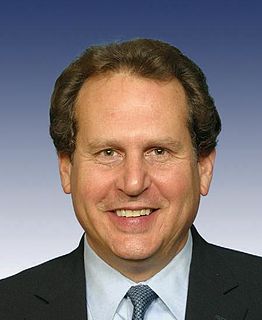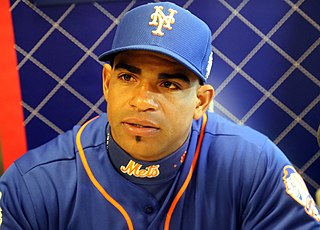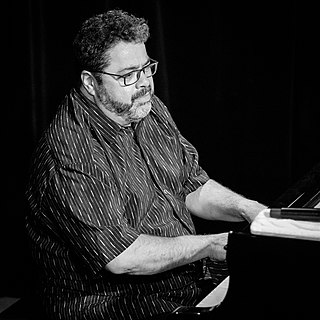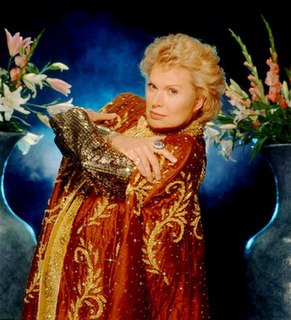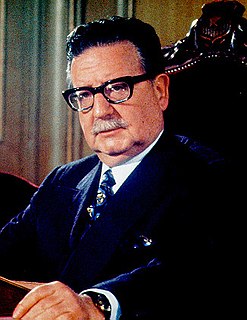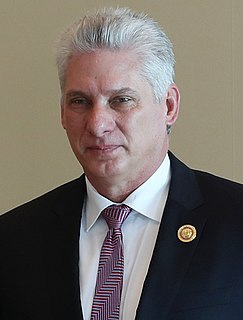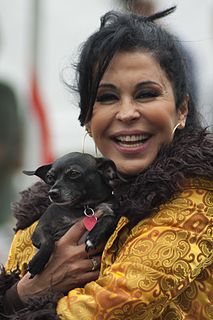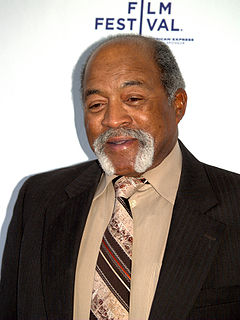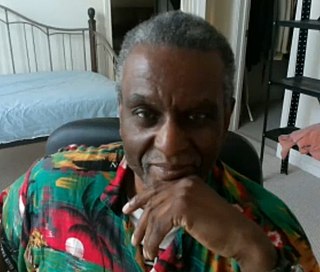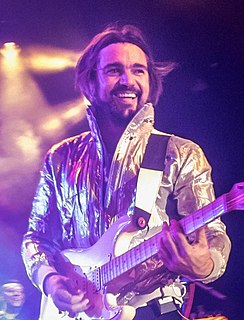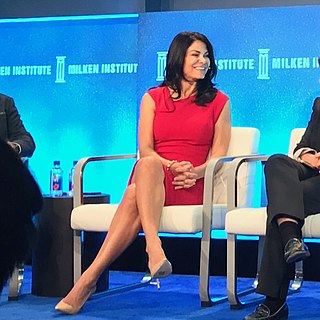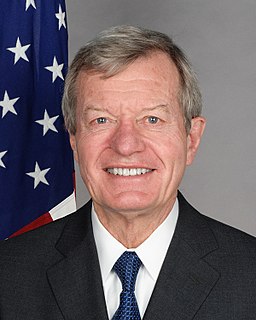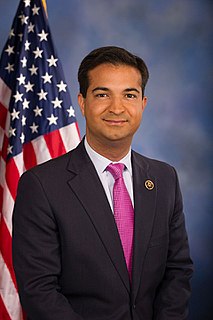Top 544 Cuba Quotes & Sayings
Explore popular Cuba quotes.
Last updated on April 14, 2025.
Part of me believes that Beyonce and Jay-Z were naive when they chose to celebrate their five-year wedding anniversary in Cuba. However, as the daughter of a former political prisoner in Cuba, I would argue that they should have known better than to travel to the island and support its repressive regime.
For some reason, we can't go to Cuba, businesses in American can't do business in Cuba. I think that that is stupid. So I hope very much and applaud the president for his efforts in that direction and hope that in the not-too-distant future, that if I have anything to say about it as president, we will work aggressively to develop normal relations in every respect with the people of Cuba.
The legacy of the embargo will be Cuba's poverty and desperation. When the island comes out of it, they'll be even more desperate than they are now about the things they think they've missed. I think one of the unintended results of the embargo is that Cuba is quite consumerist - and I'm talking about the people, not the government or the official propaganda.
I was born in Cuba. At the age of 14 years of age I was involved in a revolution. We were suffering from a very cruel, oppressive dictatorship, and the revolution started in the high schools and the universities. So when I was 14, I was involved in the revolution. I was in the revolution four years. During that time, a young, charismatic leader rose up in Cuba, talking about hope and change. His name was Fidel Castro.
You're going to tell me that things aren't right in Cuba, and so we shouldn't engage. It's lunacy. Look outside your door and see the inhumanity of Americans... that we perpetrate on a daily basis in our lives... and then tell me that you're going to isolate Cuba as an example. I'm sorry; that's unacceptable.
We have to remember that literally within months after Castro's taking office the planes from Florida were beginning to bomb Cuba. Within a year, the Eisenhower administration secretly, but formally, decided to overthrow the government. Then came the Bay of Pigs invasion. The Kennedy administration was furious about the failure of the invasion and immediately launched a major terrorist war and economic war that got harsher through the years. Under these conditions it is kind of amazing that Cuba survived.
Cuba continues to be a source of instability in the region. For example, historic numbers of people are fleeing the island of Cuba, putting migratory pressure on the United States. Number two, this Cuban government is anti-American. They sponsor - they allow the Chinese and the Russians to conduct espionage, electronic espionage and others from the island of Cuba.
I have been to Cuba many times. I have spoken many times with Fidel Castro and got to know Commander Ernesto Guevara well enough. I know Cuba's leaders and their struggle. It has been difficult to overcome the blockade. But the reality in Cuba is very different from that in Chile. Cuba came from a dictatorship, and I arrived at the presidency after being senator for 25 years.
Esperando (Cuando Cuba Sea Libre) is probably one of the most personal songs from the new [September, 2007] CD, "90 Millas" . . . as it really speaks about the celebration, nostalgia and emotion that will happen the day Cuba is free. If we're to move forward in Cuba, we really have to have a lot of forgiveness for each other and look towards the future.
They're willing to accept changes on the part of the U.S. that contribute to more money entering Cuba so they can benefit. But in terms of political changes on the island, an opening, etc., that won't happen, that won't change, and I've always said that, from the beginning. I've even said that it doesn't matter how many tourists who to Cuba, how many times the President visits Cuba; there won't be any changes in the Cuban government's posture. And that is the same as always.
In Cuba the elections for the powers of the State comes from the people, first it comes from meetings of the citizens at the base. In Cuba we call them blocks, the divisions of a city that is the term we use. Several blocks of neighborhoods that live in the same area gather in assemblies that are stipulated by law. In those assemblies the people choose freely among themselves who will represent them. The criteria takes into account the candidates characteristics, including if they are hardworking, If they are good people, if they have a clean past, and money has no bearing on who is nominated.
Cuba is actually one where I am more optimistic because of the unique nature of Cuba - 90 miles off our shore with a massive ex-patriot population, now Cuban-American population that still have deep links to the island. There I am more confident that over time that the winds of commerce and telecommunication and travel start shifting the nature of that regime. But that's a small country which has almost a unique relationship to us.
The Indians on board said that thence to Cuba was a voyage in their canoes of a day and a half; these being small dug-outs without a sail. Such are their canoes. I departed thence for Cuba, for by the signs the Indians made of its greatness, and of its gold and pearls, I thought that it must be Cipango.
Cuba is not like bourgeois democracy the ones that imposes the blockade to make Cuba change. We have direct elections. Here they put people on a list and then tell the people supposedly what they have done so they can be elected. That is the difference and why we say our democracy is truly participatory and popular.
There is a reason why Nelson Mandela went to Cuba to praise Castro and thank the Cuban people almost as soon as he got out of jail. That's a third world reaction and they understand it. Cuba played an enormous role in the liberation of Africa and the overthrow of Apartheid, sending doctors and teachers to the poorest places in the world, to Haiti, to Pakistan after the earthquake, almost everywhere. The internationalism is just astonishing. I don't think there has been anything like it in history.
If you look at US internal documents, they explain very clearly what the threat of Cuba was. So, back in the early 1960s the State Department described the threat of Cuba as Castro's successful defiance of US policy, going back to the Monroe Doctrine. The Monroe Doctrine established the US claim to dominate the Western hemisphere and Castro was successfully defying that. That's not tolerable. It is like somebody saying "let's have democracy in Greece," and we just can't tolerate that so we have to destroy the threat at its roots.
That might be the old model: to get a fixed fee. You have to start to think about other models and how they can generate interest - what it can do for a brand in the future - and about the fact that revenue can also be generated in many other ways... Just look at the one and a half million people at the free Rolling Stones concert in Cuba. And Cuba is not Central Park! So just use your imagination as to what kind of revenue can be made.
Cuba harbor fugitives of American justice. There are people living on the island of Cuba who have violated American law, including those who have stolen millions of dollars from Medicare fraud in South Florida and have fled to Cuba. Those are three reasons right there to care about what is happening on the island of Cuba, which happens to be 90 miles from our shores, basically a neighboring country.
Normal relations, never. We should never forget what has happened to the people in Cuba for forty years. All baseball cares about is getting players out of Cuba. It doesn't care about the suffering, just money. The Orioles shouldn't have gone to Cuba. This is a free county, but that's the way I feel.
In the era of slavery, you could be a so-called Afro-Cuban one day and a so-called Black American the next day, or vice versa. I mean there was all this back and forth, and there was a lot of opposition in Black America to slavery in Cuba in particular, because slavery in Cuba lasted until the 1880s.
When we decided to go to Cuba to perform, we did it because we just wanted to build a bridge, you know, between Cuba and the rest of the community. And we just wanted to prove that music and art need to be over all ideology or way to think life, and we just wanted to go in there and play just because of love.
Being an online platform, we ran into challenges with Cuba's lack of Internet accessibility. We were able to work around that by creating a program unique to Cuba where many local hosts are working with hosting partners who have Internet access and can help them manage their Airbnb requests and bookings.
Faith leaders, young people, American companies, human rights advocates, and many others have demonstrated a unique interest in our Cuba policy. But no community cares more deeply about these issues than Cuban Americans - young and old - who have maintained a profound interest in Cuba and an abiding faith in the Cuban people.
The Kennedy Administration's public pronouncements on the matter suggested that the presence of Soviet nuclear missiles in Castro's Cuba would represent an unacceptable strategic threat to the United States. . . . This urgent transformation of Cuba into an important strategic base - by the presence of these large, long-range, and clearly offensive weapons of sudden mass-destruction - constitutes an explicit threat to the peace and security of all the Americas. . . .
The problem of giving health care to everybody cannot be solved so long as we're spending huge sums of money for war. Already we have a very wasteful healthcare system, the most wasteful healthcare system in the world. I mean, we spend the most money and still have 40 million people without insurance. Compare us to Cuba. Cuba is our enemy, run by a dictator, Fidel Castro. But people in Cuba get health care at least equal to that of the United States - with very scarce resources. So I think this issue is the most important domestic issue.


